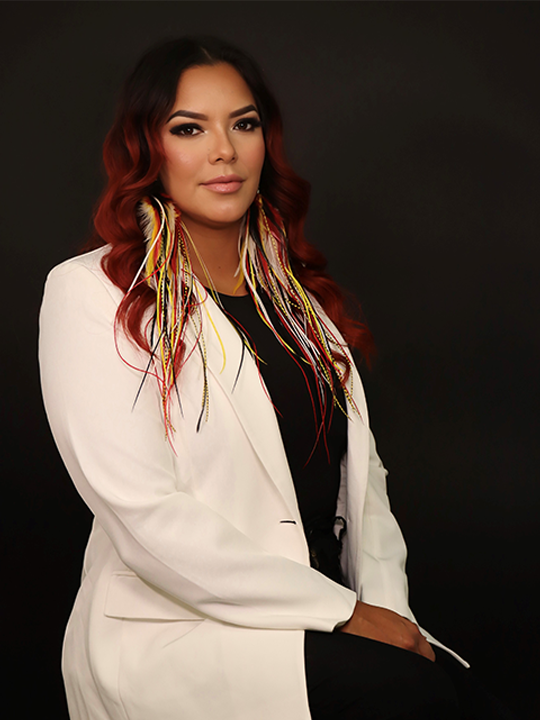Raising awareness and fighting tuberculosis stigma

Tina Campbell, a registered nurse with the Northern Inter-Tribal Health Authority, Saskatchewan, is raising awareness and reducing the stigma around tuberculosis through education and care.
"Before my diagnosis, I was unaware that tuberculosis (TB) was still something that was around. I remember my grandmother mentioning that she had TB back in the 1950s.
"During a mandatory screening to work in health facilities following my first year in nursing school, I was diagnosed with TB. I am a First Nations woman of Cree ancestry who was living in Iqaluit, Nunavut, at the time. I initially felt guilty because I thought I could have spread it to people. It was a very stressful time for me. The nursing team and physician were very knowledgeable and compassionate, explained everything in detail, including my options for treatment. I was always told from the beginning that anyone could get TB and I think that is so important to tell everyone.
"TB is treatable and curable. It takes a commitment from yourself and loved ones, the health care team and any other clinicians involved in your treatment journey that will steer toward a successful outcome. Treatment can be anywhere from 6 months to over a year, and it is important to have a trusting and supportive relationship with your care provider team. I always felt safe during my care.
"As a nurse with the Northern Inter-Tribal Health Authority, I have been involved with providing and offering education and training to TB program workers, TB program assistants, community health nurses, public health nurses, physicians and community leadership. We have TB program workers in each community and a majority of them can provide care in their Indigenous language. This is something our program is so proud of.

"Providing education sessions for health care providers is equally as important as educating community members so that everyone can have TB on their minds when one becomes symptomatic. Our Indigenous communities are still dealing with feelings and views about TB due to the attempted colonization of our people through institutions that were created in the 1800s. Sending our people to residential schools, Indian hospitals and TB sanatoriums, which isolated individuals from their families and cultures, led to many not knowing or consenting to their treatment plans. These experiences have created a mistrust and a rift between Indigenous people and institutions today. Through cultural competency and awareness training about the historical treatment of TB, our health care providers will be able to deliver care with understanding and compassion.
"We have to encourage health care providers, leaders, our clients, families and communities to talk about tuberculosis. In order to eliminate TB, we need to break down barriers including stigmatization of TB clients. Educate yourself and start conversations about TB. Learn the signs and symptoms and understand that different types of TB can also occur. Anyone can get TB. People often do not know that they have TB or where they could have been exposed.
"If you are worried and scared, ask questions! I was upset, but the nurse was very good at answering any questions I had. Support loved ones, friends, colleagues if you know they are affected by TB. Encourage testing when someone becomes symptomatic.
"Being open with your diagnosis can be scary and there is a worry that you will experience stigma, but I believe that more people opening up and talking about their experiences will encourage and inspire others to do the same."